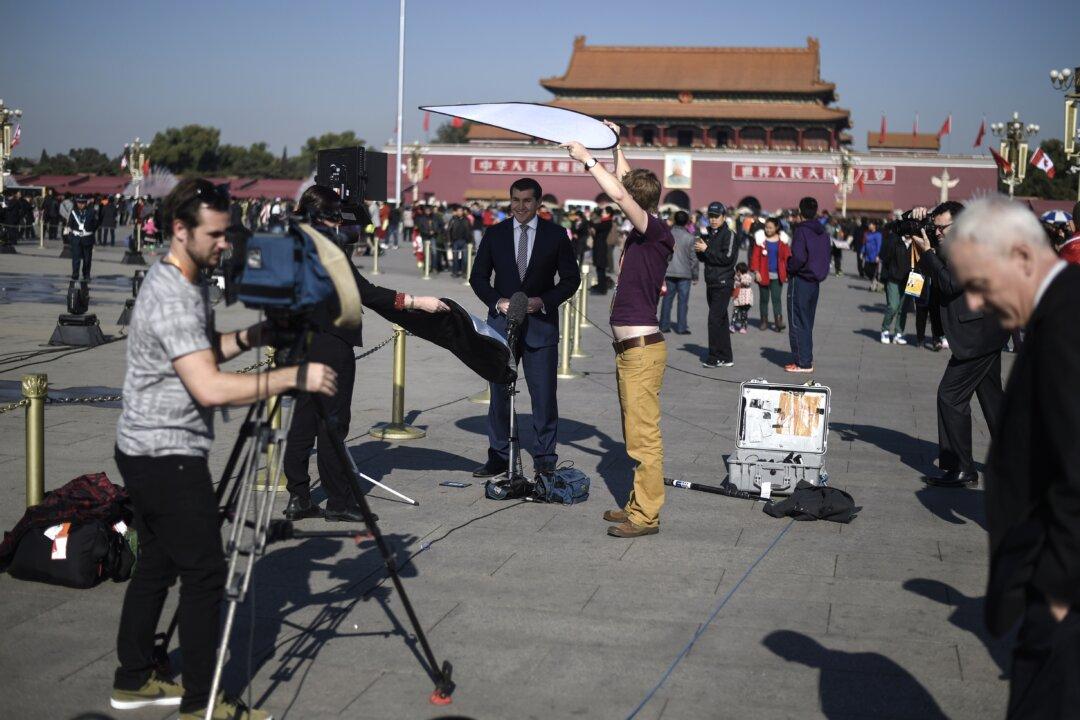BEIJING—The Chinese regime has “weaponized” visas as part of a stepped-up campaign of pressure on foreign journalists operating in the country, the Foreign Correspondents Club of China said in a report on Mar. 2.
“Since 2013, when Xi Jinping’s ascension to power was completed, China has forced out nine foreign journalists, either through outright expulsion or by non-renewal of visas. The FCCC fears that China is preparing to expel more journalists,” the group said, citing responses from 114 reporters to a survey.
“Chinese authorities are using visas as weapons against the foreign press like never before, expanding their deployment of a long-time intimidation tactic as working conditions for foreign journalists in China markedly deteriorated in 2019,” it said.
“What happened to the Wall Street Journal journalists was just an independent case,” said Zhao Lijian, spokesman for China’s foreign ministry. He said the FCCC report was “inappropriate” and that China does not recognize the organization.
Beijing has previously strongly denied accusations the government is limiting press freedoms for foreign reporters. It has also criticized foreign media coverage of issues like the treatment of minority Uyghurs in Xinjiang, protests in Hong Kong and China’s senior leadership, calling it biased.
The FCCC said that for a second year running, none of the respondents to the survey said reporting conditions in China had improved, with 82 percent saying they had experienced interference, harassment or violence while out reporting.
A quarter of respondents also said they had received visas of less than 12 months. China-based foreign reporters typically receive one-year visas and have to renew them annually.
“As China reaches new heights of economic influence, it has shown a growing willingness to use its considerable state power to suppress factual reporting that does not fit with the global image it seeks to present,” the report said.
“As scrutiny is intensifying toward China, it is more important than ever for foreign media to have freedom to report and cover the country,” the report added.
“The ability for foreign journalists to be based in China without impediment is crucial for quality international news coverage about the country.”
Some Reuters journalists are members of the Foreign Correspondents Club of China.





